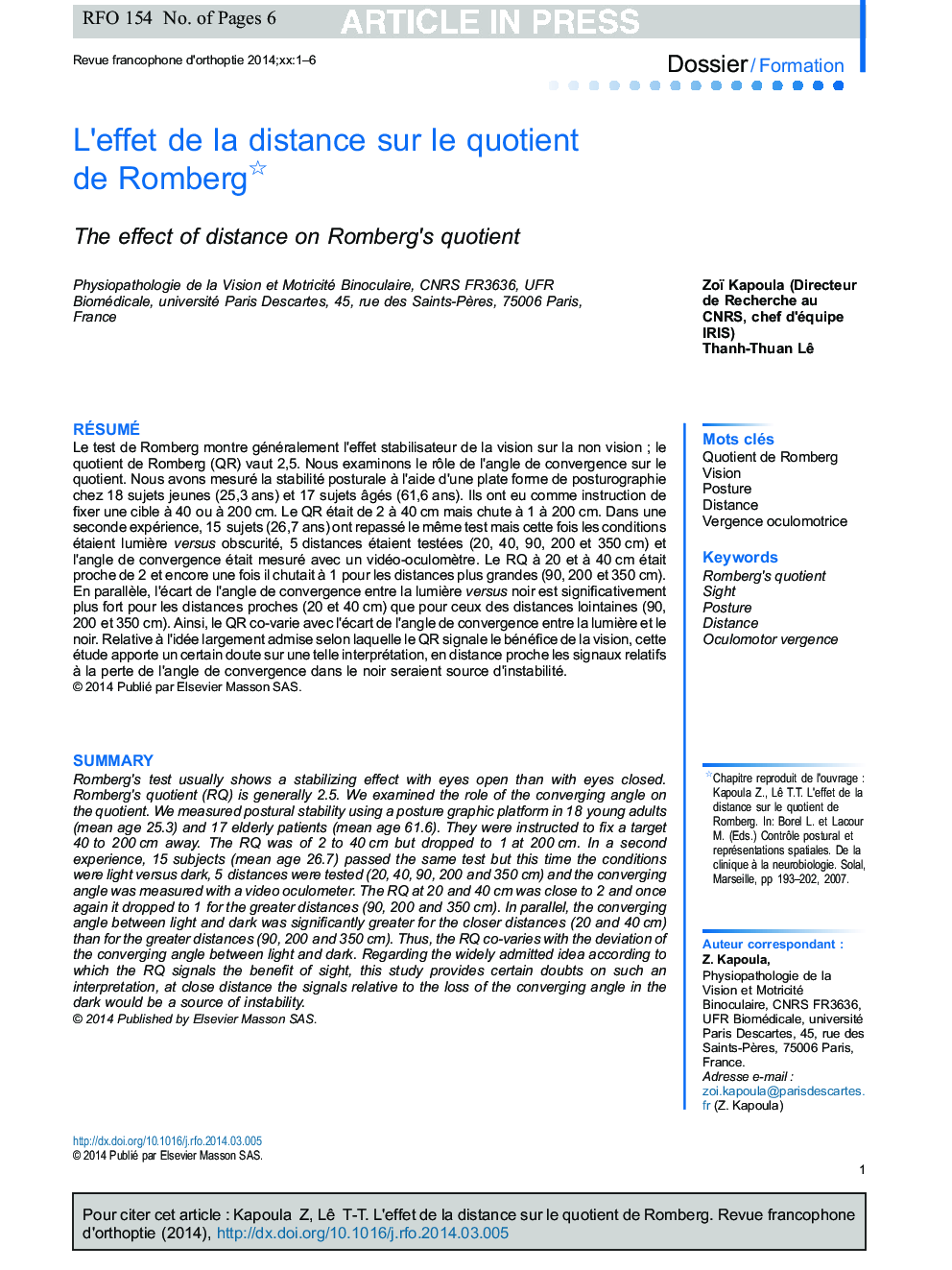| کد مقاله | کد نشریه | سال انتشار | مقاله انگلیسی | نسخه تمام متن |
|---|---|---|---|---|
| 2698362 | 1143970 | 2014 | 6 صفحه PDF | دانلود رایگان |
عنوان انگلیسی مقاله ISI
L'effet de la distance sur le quotient de Romberg
ترجمه فارسی عنوان
اثر فاصله بر فاکتور رمبرگ
دانلود مقاله + سفارش ترجمه
دانلود مقاله ISI انگلیسی
رایگان برای ایرانیان
موضوعات مرتبط
علوم پزشکی و سلامت
پزشکی و دندانپزشکی
چشم پزشکی
چکیده انگلیسی
Romberg's test usually shows a stabilizing effect with eyes open than with eyes closed. Romberg's quotient (RQ) is generally 2.5. We examined the role of the converging angle on the quotient. We measured postural stability using a posture graphic platform in 18Â young adults (mean age 25.3) and 17Â elderly patients (mean age 61.6). They were instructed to fix a target 40Â to 200Â cm away. The RQ was of 2Â to 40Â cm but dropped to 1Â at 200Â cm. In a second experience, 15Â subjects (mean age 26.7) passed the same test but this time the conditions were light versus dark, 5Â distances were tested (20, 40, 90, 200Â and 350Â cm) and the converging angle was measured with a video oculometer. The RQ at 20Â and 40Â cm was close to 2Â and once again it dropped to 1Â for the greater distances (90, 200Â and 350Â cm). In parallel, the converging angle between light and dark was significantly greater for the closer distances (20Â and 40Â cm) than for the greater distances (90, 200Â and 350Â cm). Thus, the RQ co-varies with the deviation of the converging angle between light and dark. Regarding the widely admitted idea according to which the RQ signals the benefit of sight, this study provides certain doubts on such an interpretation, at close distance the signals relative to the loss of the converging angle in the dark would be a source of instability.
ناشر
Database: Elsevier - ScienceDirect (ساینس دایرکت)
Journal: Revue Francophone d'Orthoptie - Volume 7, Issue 1, JanuaryâMarch 2014, Pages 14-19
Journal: Revue Francophone d'Orthoptie - Volume 7, Issue 1, JanuaryâMarch 2014, Pages 14-19
نویسندگان
Zoï (Directeur de Recherche au CNRS, chef d'équipe IRIS), Thanh-Thuan Lê,
